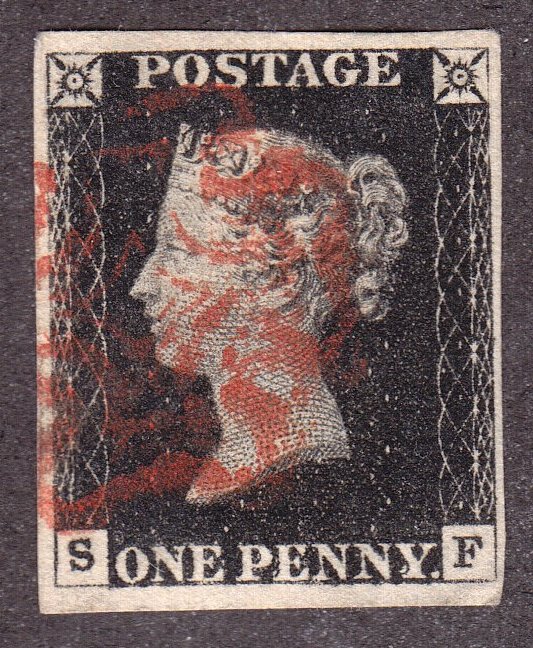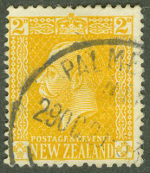
Discussion - Member to Member Sales - Research Center

Discussion - Member to Member Sales - Research Center

"Some say the Internet has made the world a smaller place. However, long before the dot.com revolution, stamp collectors were surfing another information superhighway to learn more about foreign lands and their customs; all thanks to their collections, philatelic literature and, of course, exhibitions such as Stampex."
Well, up to a point - and by 'philatelic literature' I suspect Shepherd is referring especially to Stanley Gibbons' own publications, which for most collectors have for decades been the sole source of information about foreign stamps. Until, that is, the internet. Now we have far more information available about what is depicted on stamps, and can even note cases where Gibbons has got it wrong.
I have been working on a section of my collection which I began about 15 years ago, in the days before I had a computer or an internet connection - the days of quadrille paper, handwritten inscriptions and pencil-ruled borders. In many ways I was sad to do away with those pages, but the deal-breaker was the many inscriptions I had to make in pencil, simply because there was no easy way to verify or enlarge upon the bare details Stanley Gibbons offered in their catalogue. Now, with my own printed pages and as much verifiable detail as I wish to include, my collection has benefited hugely from the 'dot.com revolution'.
Gibbons, forced to deal with a hugely-expanding number of stamp issues, the majority needless, shows signs of growing tired of being a catalogue of record as well as price. It begins to show in their current productions, where errors and omissions creep in.
I tried asking them about this at Stampex. Inevitably, those present at the stand were unable to respond: the relevant people weren't there that day, they said.

1 Member
likes this post.
Login to Like.
...if a member.
The philatelic libraries to which you refer are almost certainly (since I am not directly familiar) just that: philatelic libraries. They do not, I suspect, hold information on the content of stamps, whether geographical, scientific or (particularly important in my case) biographical. As regards this, where formerly we had to rely on massive encyclopedias (English language ones, in my case) held in reference libraries (a dying breed in the UK), now we can access worldwide information in automatic translation where necessary. In finding biographical information on at least a thousand people in the past few years, I have only ever drawn two or three total blanks: where a name appears only in a stamp catalogue and has no internet presence anywhere else.
Fortunately I have just sufficient academic training to be able to ascertain the trustworthiness of the major internet sources: I would never rely solely on stamp forums for my information. So, who are Pyotr Masherov, Hysni Kapo and Jonas Zemaitis, and why are they worthy of a place in my WW2 collection? You won't find the answer in the SG catalogue, and I doubt the Philatelic Libraries would tell you, either.
Nor, I suggest, do these libraries concern themselves with the whys and wherefores of stamp issues: who authorised what type of issue and when, into whose coffers the resulting funds went, under what political constraints were the designers working, what time elapsed between the decision to produce a set and the release of that set, and so forth. This information, vital to someone who sees postage stamps as an signifier of the society which produced them, is admittedly harder to come by, and may simply not be available.
If I've got this wrong, tell me and I'll sign up with the RPSL directly - in the unlikely event the doorman at their august residence would let me in!

Login to Like
this post
Thanks a lot, Chris, for this information, which I certainly did not know and which may well prove useful. 

Login to Like
this post
Hi Ian,
I'm sure you know the answers to your questions, but I couldn't resist looking them up.
https://en.wikipedia.org/wiki/Pyotr_Masherov
https://en.wikipedia.org/wiki/Hysni_Kapo
http://colnect.com/en/stamps/stamp/364215-Hysni_Kapo_Politician-70th_Birthday_of_Hysni_Kapo-Albania
https://en.wikipedia.org/wiki/Jonas_%C5%BDemaitis
http://colnect.com/en/stamps/stamp/144585-Jonas_Zemaitis-Vytautas-People-Lithuania
Merv

Login to Like
this post
Yes, you will have noticed that, although their main claim to fame may be other than what happened in the war, Masherov, Kapo and Demaitis (three names taken at random) nevertheless featured in some way that warrants their inclusion in my collection.
Looking up every name in all the countries was a long job! (It isn't quite finished yet, either.) Additionally, a judgement has to be made as to what constitutes a worthwhile mention - few of those men commemorated on stamps who lived through the war were entirely untouched by it. Some future politicians found it valuable to state that they did important resistance work - a matter which was often by its nature unverifiable. Many contemporary politicians were interned in concentration camps at some point. And so on.

Login to Like
this post

To diverge slightly from the Bidstart thread, here is Dean Shepherd, editor of Gibbons Stamp Monthly, in his latest editorial, chiefly on the subject of the Stampex Exhibition, but making this point:
"Some say the Internet has made the world a smaller place. However, long before the dot.com revolution, stamp collectors were surfing another information superhighway to learn more about foreign lands and their customs; all thanks to their collections, philatelic literature and, of course, exhibitions such as Stampex."
Well, up to a point - and by 'philatelic literature' I suspect Shepherd is referring especially to Stanley Gibbons' own publications, which for most collectors have for decades been the sole source of information about foreign stamps. Until, that is, the internet. Now we have far more information available about what is depicted on stamps, and can even note cases where Gibbons has got it wrong.
I have been working on a section of my collection which I began about 15 years ago, in the days before I had a computer or an internet connection - the days of quadrille paper, handwritten inscriptions and pencil-ruled borders. In many ways I was sad to do away with those pages, but the deal-breaker was the many inscriptions I had to make in pencil, simply because there was no easy way to verify or enlarge upon the bare details Stanley Gibbons offered in their catalogue. Now, with my own printed pages and as much verifiable detail as I wish to include, my collection has benefited hugely from the 'dot.com revolution'.
Gibbons, forced to deal with a hugely-expanding number of stamp issues, the majority needless, shows signs of growing tired of being a catalogue of record as well as price. It begins to show in their current productions, where errors and omissions creep in.
I tried asking them about this at Stampex. Inevitably, those present at the stand were unable to respond: the relevant people weren't there that day, they said.

1 Member
likes this post.
Login to Like.

re: Stamp collecting and the internet
...if a member.
The philatelic libraries to which you refer are almost certainly (since I am not directly familiar) just that: philatelic libraries. They do not, I suspect, hold information on the content of stamps, whether geographical, scientific or (particularly important in my case) biographical. As regards this, where formerly we had to rely on massive encyclopedias (English language ones, in my case) held in reference libraries (a dying breed in the UK), now we can access worldwide information in automatic translation where necessary. In finding biographical information on at least a thousand people in the past few years, I have only ever drawn two or three total blanks: where a name appears only in a stamp catalogue and has no internet presence anywhere else.
Fortunately I have just sufficient academic training to be able to ascertain the trustworthiness of the major internet sources: I would never rely solely on stamp forums for my information. So, who are Pyotr Masherov, Hysni Kapo and Jonas Zemaitis, and why are they worthy of a place in my WW2 collection? You won't find the answer in the SG catalogue, and I doubt the Philatelic Libraries would tell you, either.
Nor, I suggest, do these libraries concern themselves with the whys and wherefores of stamp issues: who authorised what type of issue and when, into whose coffers the resulting funds went, under what political constraints were the designers working, what time elapsed between the decision to produce a set and the release of that set, and so forth. This information, vital to someone who sees postage stamps as an signifier of the society which produced them, is admittedly harder to come by, and may simply not be available.
If I've got this wrong, tell me and I'll sign up with the RPSL directly - in the unlikely event the doorman at their august residence would let me in!

Login to Like
this post

re: Stamp collecting and the internet
Thanks a lot, Chris, for this information, which I certainly did not know and which may well prove useful. 

Login to Like
this post

re: Stamp collecting and the internet
Hi Ian,
I'm sure you know the answers to your questions, but I couldn't resist looking them up.
https://en.wikipedia.org/wiki/Pyotr_Masherov
https://en.wikipedia.org/wiki/Hysni_Kapo
http://colnect.com/en/stamps/stamp/364215-Hysni_Kapo_Politician-70th_Birthday_of_Hysni_Kapo-Albania
https://en.wikipedia.org/wiki/Jonas_%C5%BDemaitis
http://colnect.com/en/stamps/stamp/144585-Jonas_Zemaitis-Vytautas-People-Lithuania
Merv

Login to Like
this post

re: Stamp collecting and the internet
Yes, you will have noticed that, although their main claim to fame may be other than what happened in the war, Masherov, Kapo and Demaitis (three names taken at random) nevertheless featured in some way that warrants their inclusion in my collection.
Looking up every name in all the countries was a long job! (It isn't quite finished yet, either.) Additionally, a judgement has to be made as to what constitutes a worthwhile mention - few of those men commemorated on stamps who lived through the war were entirely untouched by it. Some future politicians found it valuable to state that they did important resistance work - a matter which was often by its nature unverifiable. Many contemporary politicians were interned in concentration camps at some point. And so on.

Login to Like
this post

